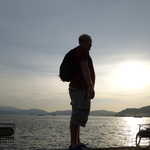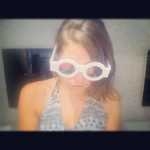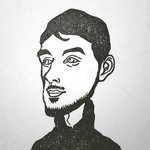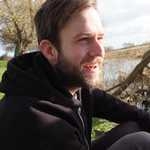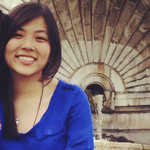

Amsterdam: once a while you'll arrive late at your work because a boat crosses your road
September 17th, 2013, 9am
This city consists of 90 islands. Divided by water, connected with bridges. 1500 to be precise.
These bridges are made to enable different ways of transportation: cars, trains, busses, trams, scooters. The most popular one: bikes.
Almost anywhere you come, there is water. And when there’s is no water, there are bikes.
Bikes are used for everything: going to work, going to a dance event, doing groceries at the local market, going to drink coffee with a friend. Everything.
They are used by anyone: elderlies and their grandchildren, men and women, CEO’s and their employees. Anyone.
Water and bikes. They add certain ‘softness’ to the city. It makes it feels like a village. It makes the city more human.
Once a while they collide.
You’re on your way to work, pedalling hard because you left late, you’re starting to feel sweat on your back.
Approaching the last bridge, you hear a bell ring. This means bad news: a boat is coming. You need to stop. You need to wait. Every effort you did to arrive on time is wasted. This could take minutes. This will take minutes.
The bridge is raised to make way for the boat.
There are different ways to undergo this. Most will take out their smartphone out of their pockets, like some Facebook posts and do whatever it takes to get distracted.
Some people don’t have a smartphone, or they are smart themselves. They know how to wait: they stare ahead and let their minds drift.
I could take this opportunity to give a pretentious lesson to show my wisdom, and that’s just what I’m going to do:
In life, to get from point A to B, you’re going to have to wait.
Enjoy it.
Filed Under
Other moments in Amsterdam
-
travel writing, Bookshops
The Great Unbundling
in Amsterdam, The Netherlands -
drawing, Friends
Lena
in Amsterdam, The Netherlands -
Home, the heart. In an Amsterdam building, about to be torn down, Marjan Teeuwen, built the interior in giant stone piles.
in Amsterdam, The Netherlands -
Bad ideas, drawing
Bothered with structures
in Amsterdam, The Netherlands -
Street, Roadside garden
Just passing by
in Amsterdam, The Netherlands -
Serendipity
Take your pick
in Amsterdam, The Netherlands -
blues, Moods
It'll be all right
in Amsterdam, Netherlands -
painting, Friends, Prose
Revisiting birdman
in Amsterdam, The Netherlands -
sketches, drawing
First let me apologize for being obvious here is just that after reading to my friend Luis Mendo who recently wrote a piece "Never walk alone"
in Amsterdam, The Netherlands
